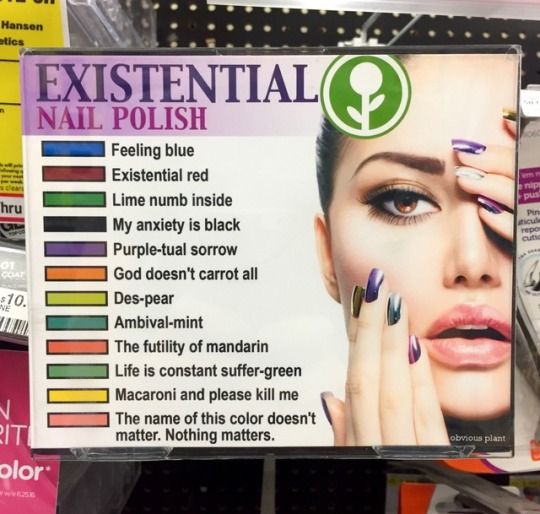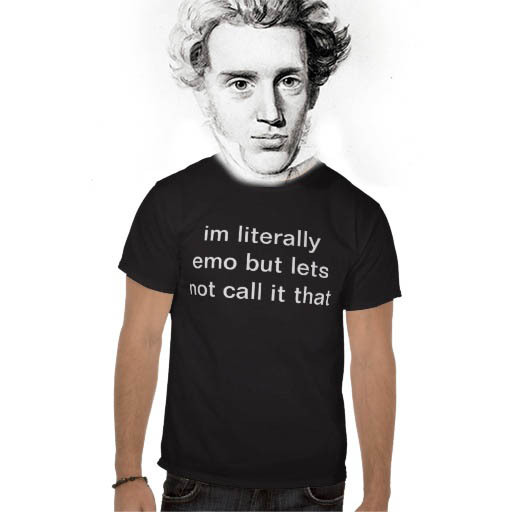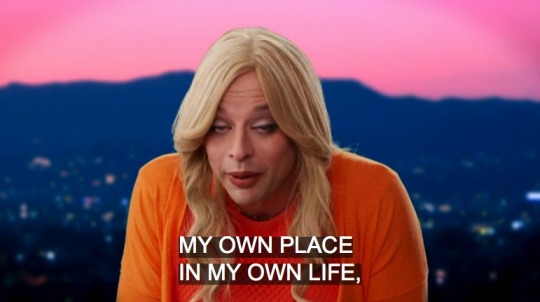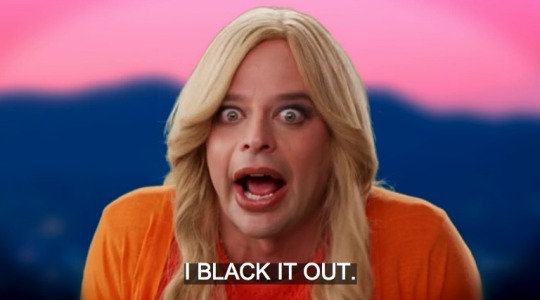Text
links mentioned below
death videos
https://www.youtube.com/watch?v=CN7ZD9uw7LQ&list=PLiZM8Q-JIpGyoHERPigmWM7FU_6-L3Yda&index=3
https://www.youtube.com/watch?v=0gUOP9IvZew&list=PLiZM8Q-JIpGyoHERPigmWM7FU_6-L3Yda&index=9
https://www.youtube.com/watch?v=wCK3rqpcGm8
0 notes
Text
nov 4
Something I found strange/interesting during this week's discussion was how viod we were of defining ‘utopia’ I believe the class discussion would have been vastly different with a defined utopia. Some viewed it as a high functioning society and others viewed it as perfection in the eyes of all members of that society. I think most people ( if not all ) would agree that a perfect society in the eyes of all would not be possible. That humans have too varied ideas of perfection. There is an argument for the second idea of utopia a admittedly a looser definition of the word. I felt that if we had more established views that the dessous would have gone further and get less stuck on some view points. Also that many people described utopia much like communism, everyone gets the same pay same job and everything. Many that was more poor explanation but i thought that was quite strange. A few people argued that ‘what if someone decided to be different’ and i think that missed the point completely. In both definitions of utopia it does not imply that everyone would be the same monotone, alike. It's strange to think that people think that for it to be an idealised version of us now that we would all have to be equal. Also to go off on another argument had to do with everyone being happy all the time yet another think i do not believe to be implied by either definition ( if anyone disagree please share ).
For starters i'm going to put this part separate because it is not directly related but it does affect my opinions on this greatly I see myself as a death positive person a movement around askamorticain and the good death, that pretty much works to destigmatize and remove the fearsome death and dying, i’ll link some interesting stuff about that below)
I do not fully agree that by making humans immortal that existential dread would be a thing of the past. I do not think we ask why we live because we will soon die, but because the act of living, making choices ( rather or not we truly can), and other problems would still be there if not magnified. I mean the idea that you live forever or die at some point doesn't answer what it means to live. I do not believe we care because we will die, but just the opposite we wonder because we live. Life would still be quite arbitrary if we lived forever. Although possibly religion would look much different and would more like philosophy than religion.
I would also like to add as more of a side note that i do not think that passion or emotion equals irrational or at least not always.
0 notes
Text
The interesting part of this week's presentation had to do with right wrong and how subjective that idea can be. I do not understand the group's theory though.they started by saying the winner of the war writes the history on it and gets to pick who is the hero was, then later when talking about the prey and predator metaphor stated the prey chooses what is moral. Those ideas seem to be contriding? Maybe i misunderstood that part if i did please someone respond explaining the nauce i missed completely during that part . I agree strongly with nietzsche’s thoughts on guilt and regret, regret or feeling guilty about something does not mean you are not learning from them or that you won't repeat those action, it just mean you're stuck in your head about an issue I think to even fully get over or learn from a mistake means you have moved on from that guilt. Guilt to me seems to only change your level of anxiety , when you no longer feel the guilt you can clear yourself from anxiety you can truly fix the root of your problem. Guilt doesn't manifest itself in meaningful actions it is learning from past mistakes that does become your actions and choices.
0 notes
Photo

Existential nail polish. Left in a local drug store.
16K notes
·
View notes
Text
week four responses
Response to @fee304
https://fee304.tumblr.com/post/166162527735/03oct17-kierkegaards-existential-dialectic
First off thank you so much for your kind words on our group’s presentation. Also another big thank you for being such a thoughtful and responsive class member. honestly before going up when we started to notice over half the class disappear we all were so nervous we would not be able to get the “ball rolling” with such a small class but you and a few other proved that the sheer number of people did not matter, but the thoughtfulness and great ideas to share in the few made for a great class. I agree with your statement about not being Christian making parts of the reading hard to swallow, it really make you put on your best attempt at making yourself a blank slate to truly be able to understand the writing which I feel is something that will come up much more in as we continue this semester.
Response to @uebermeinerhausthur
https://uebermeinerhausthur.tumblr.com
I felt that Kierkegaard possibly does not care more about the self then God, but maybe more so the relationship between them. You can see this reflected in his great disdain for organized religion being largely due how many will just follow the teachings of some priest and never reflect or have any growth just follow. I agree with the \ of the point you make referencing that quote. It was also one that kept me up at my desk.
1 note
·
View note
Text
Being the 2nd group to present this week the amount of stress is finally off my shoulders about presenting to the class has greatly decreased. Quick question just as a learning experience with presenting what parts of my groups discussing work what did not does anyone feel we left something out ?
This reading in particular I struggled with for weeks, I would digest bits and pieces in between the assigned reading since the beginning of this semester. One substantial challenge of this reading had to do with trying your hardest to not let your own ( or well my own) beliefs keep you from having a good understanding of the material and the argument being made by kierkegaard. Often I would struggle to let myself live in his reading to understand it. That is although not truly about the writing presented is my biggest take away this week I learned how to let myself truly let go of many of my own hang ups with the writing and learn how to defend it and understand its ins and outs , even with disagreeing with large chunks of it.
I although disagree with a lot he says, i am in absolute love with how kierkegaard describes the true connection to god being more person and less surrounded by going to church because you “have to” or being preached at by a priest without being able to challenge those beliefs while still have pure faith in god.
Another part I love is how he refers to sin. It's almost as if he removed a lot of the religious overtones to the word. Does anyone else agree ? or have any thoughts on kierkegaard's use of the word sin when referring to the ethicals sphere.
0 notes
Text
Submission three
My favorite part of discussion has to be the idea of pure faith which to me is something I want to have, but have never been able to achieve. I recall a lyric that's “ I want to have faith in something I do not get” (cuomo, mario) sounds kind of corny but is something or a thought I really resent with. In that want and unable to have faith makes kierkegaard difficult for me to truly understand or digest. In the fact that his writing makes me very uncomfortable and makes me try to reset myself while I read makes it exciting and pleasurable. Especially compared to Camus who I was much more familiar with and my “default setting” agrees with. The great thing about this class as compared to others is our collective ability to not agree but not hate on eachother it's wonderful. There is no better way to combat your own beliefs then to defend them with logic and not personal attacks.
In kierkegaard’s life death was present from a young age and even died fairly young himself. Ones revelation to death is always very intriguing, death seemingly is the catalyst to many of the works we have read. Death and the relation to meaning of life seems to be very interwoven so far even the christian kierkegaard has agreed that life has no meaning just that the belief in a God ( or a christian God) makes it so you are not just floating through aimlessly that instead we have an all knowing God and we must assume his plans are justified.
I love kierkegaard’s point on going to church and practicing religion to being different to having a close and personal belief in God. Personally the reason many majors religions have not appealed to myself is my own issues with organized religion and how it seems it's always corrupted by those who seem power and use their positions of faith to gain that power, it is always seems perverse, wrong. The highlight of personal belief is much more strong and doesn't seem to be as corruptible compared to organized religion for there is no promise of power over others in our own faith. This added to his definition of true faith is quite important and works and flows beautifully together.
0 notes
Text
More camus
I would like to start off explaining a comment I made in class because I did not feel I was understood. When I said that camus is saying suicide is the easy way out, I was not speaking on the easy way out of issues but the easy way out of the absurd. I apologize if I made others uncomfortable or made to feel that suicidal thoughts are something far more travail then they actually are. I Have had many personal experiences with suicidal thought both in my direct life or with my loved ones. Also with my “debate” with the girl across the room ( I am the one who said the imagine if I Have no friends or loved ones comment ) I brought that up not to be justify one's reasoning to kills themselves but to point that one should can live solely for themselves not for family or friends. Now that I got that off my chest ( it sincerely bothered me that I felt I walked out without being clear enough) I absolutely loved the The Myth of Sisyphus, there have been many times in my life I have become painfully aware that There is a great change that inherently my life has no meaning. That can be a shattering realization, the same question almost brought Tolstoy to kill himself ( although Tolstoy came to a different conclusion then Camus). Growing up in a mixed faith household, my mother is a catholic my father is an atheist, I have never had too strongly of a conviction rather or not there was a god. One of the issues with the thought there is no god is if there is no god what purpose am I here for? I enjoyed that camus answer in the Myth of Sisyphus is to embrace it rebell and love life anyway. There is something quite liberating about that idea. Camus also defines and gives a name to the hopeless feeling “Man stands face to face with the irrational. He feels within him his longing for happiness and for reason. The absurd is born of this confrontation between the human need and the unreasonable silence of the world.” This was my first introduction to the idea of the absurd but it was already something I had become quite aware of throughout my life. The fact that someone else has had those though was quite liberating in itself and as the Myth of Sisyphus continues it gives more and more justifications and reassurances that suicide is not the answer. Those reasons and answers go above there is someone who loves you or a very hallow it will be okay.
0 notes
Text
The Stranger
The Stranger
This week in class we talked about Albert Camus’s The Stranger. Written during 1942 in German occupied France, The Stranger is follows Meursault a man who seems to just float through life. First line of the book set the tone for the rest of the piece “ Mother died today. Or maybe, yesterday; I can’t be sure”. Meursault is a very indifferent man and for some reason that bugs the shit out of the class. Either having to justify his behavior by finding a medical conditions that fits or on the other hand speaking to what a horrible person he is. In reality meursault is neither good or evil he just is. Clearly the class puts a heavy emphasis on having strong emotions and convictions. Almost like we think that is what makes us human. That shows a lot of what we consider important in ourselves. Camus’s work often is his explanation and response to The absurd. Or the idea that we as human are always looking for inherent value in life when in reality inherent value in life does not exist. In my opinion Meursault shows one way to go through life knowing that truly your actions do not matter to the uncaring universe. He choice indifference to think if I do not matter to the world why should anything matter to me. I think the classes strong hatred to the idea he doesn't care shows why that way of living does not work. Most of us feel that that is not really living. Meursault reacts much like a house pet if it is easier just to along with what others are doing just go with it. Although though morality we disagree with him, in the end we have the same fate. That is the taste that The Stranger left in my mouth, that regardless of how I react or what I do I am going to die. Upon further thought though that because if my life has no inherent value it means I do get to create it. That idea is one that excites me. I believe arguing rather or not he should have shot anyone to be a fruitful conversation. The sum of meursault actions are neutral not good or bad because he is a neutral person.
1 note
·
View note
Text
things that are absurd
sisyphus
corporation tax cuts in the uk
the insane clown posse
170 notes
·
View notes





